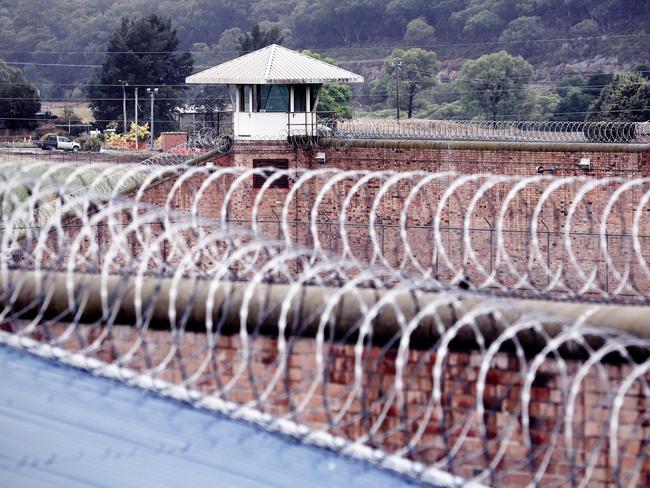PRISM deradicalisation program in prison works, academics say
The idea that inmates can be taught to change deeply ingrained ideological and religious views has been met with some scepticism but academics believe the system currently in place in NSW jails to deradicalise inmates is working.
NSW
Don't miss out on the headlines from NSW. Followed categories will be added to My News.
- Inside the mind of Australia’s first deradicalised inmate
- Counter-terror cop who helped turn radical inmate around
Prison deradicalisation does work in helping extremist inmates change their views with experts warning Australia can’t simply “jail its way out of the problem”.
While views differ around the world on the best way to manage radicalised inmates, NSW prefers to keep them together, but isolated from the general prison population.
Most of the country’s hard line convicted terrorists are in Goulburn’s Supermax prison.
However jail yard radicalisation has become a concern over the past decade with the number of inmates on terror offences rising.
In a bid to help radicalised inmates change their hard line beliefs, or reach those at risk of developing extremist ideations, NSW introduced its deradicalisation program – Proactive Integrated Support Model (PRISM) – in 2015.

Resources have increased threefold and seven inmates are now on parole after participating in PRISM, according to Corrective Services NSW.
Regardless, the idea that inmates can be taught to change deeply ingrained ideological views has been met with some scepticism.
But University of Queensland countering violent extremism academic, Professor Adrian Cherney, who interviewed inmates and prison staff, said PRISM works.
“Yes, the evaluation I completed showed positive results,” he said.
The longer an inmate engaged with PRISM, which is voluntary, tailored to individuals and involves psychologists and Muslim chaplains, the more likely they were to show change “relating to deradicalisation and disengagement”, he said.
NSW needed an intervention program because it has the highest number of terrorism inmates in the country.
“We cannot imprison our way out of the problem of terrorism and violent extremism, so programs like PRISM are important in enhancing community safety,” Prof Cherney said.
Deakin University global Islamic politics Professor Greg Barton agreed and used drug and alcohol therapy as an example.
“We know by definition that it doesn’t always work. When it does the results can be significant,” he said.
MORE FROM AVA BENNY-MORRISON:
Prison guard turned alleged smuggler faces jail
‘Stop struggling or it looks like I’m raping you’
Mr Barton said rehabilitation programs cost money but so does keeping someone in jail for the rest of their life.
“We have to work out who can be helped and recognised if we don’t try and work towards rehabilitation then recidivism is a massive problem,” he said.
One of the inmates Prof Cherney interviewed said he joined PRISM to prove to authorities he wasn’t an extremist.
Others said it offered an opportunity to voice their religious beliefs or steer away from prisoners who tried to radicalise others.

